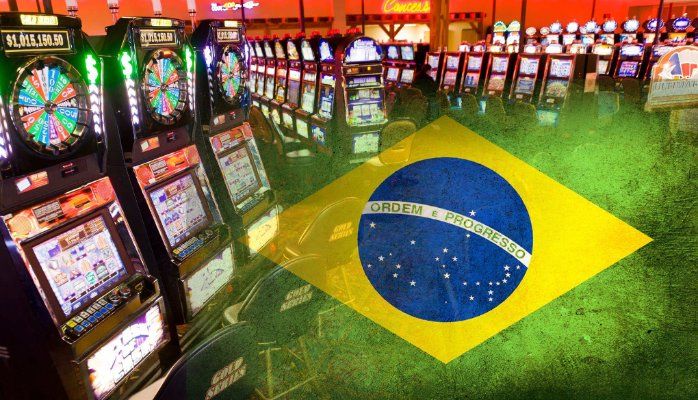Brazilian President Luiz Inácio Lula da Silva has signed Provisional Measure No. 1,182, setting the stage for the regulation of sports betting in Brazil. The measure aims to generate between BRL 6bn to BRL 12bn in revenue and has a 120-day window for Congressional approval.

The Provisional Measures: What’s New?
The new measure includes the creation of the National Secretariat for Games and Betting (SNJA), which will be overseen by the Ministry of Finance. It also outlines tax rates for operators and bettors.
- Tax on sports betting revenue: 18%
- Tax on bettors’ winnings above BRL 2,112 ($446) per year: 30%
- Expected revenue: BRL 6bn to BRL 12bn
Public Sentiment: A Mixed Bag
While younger demographics and sports enthusiasts largely support the move, concerns about gambling addiction and social consequences persist. Religious and conservative groups have also expressed opposition.
Public sentiment regarding the legalization of sports betting in Brazil appears to be mixed but generally leans toward support, especially among younger demographics and sports enthusiasts who see it as an opportunity for entertainment and potential income. The government’s stance that regulating sports betting could generate significant revenue (BRL 6bn to BRL 12bn) also adds a layer of economic incentive that could sway public opinion in favor of legalization.
However, there are also concerns about the potential for increased gambling addiction and its social consequences. Religious and conservative groups in Brazil have historically opposed gambling activities, and their influence could be a factor in shaping public sentiment.
- Legalized sports betting enjoys fairly widespread public support in Brazil. Recent polls show around 60-70% of Brazilians support legalizing and regulating sports betting.
- There is a perception that legalization can help curb the rampant illegal sports betting market in Brazil. Estimates suggest Brazilians wager billions per year illegally on sports.
- Legal betting is seen as a potentially significant source of tax revenue for Brazil’s government at federal and state levels. This extra revenue is appealing to citizens and lawmakers alike.
- However, there are concerns from some religious groups and problem gambling advocates about the risks and social impacts of increased gambling access.
- Many sports fans are enthusiastic about being able to bet safely and conveniently on popular Brazilian sports like football. But others worry it may lead to corruption in sports.
- Lawmakers have been gradually legalizing some forms of betting in recent years, including online sports lotteries. But the full regulation of sports betting still remains a contentious political issue.
- Most observers expect Brazil will continue down the path of legalization due to public demand, but the specific regulatory details are still being debated.
While there is a level of support for the legalization of sports betting, especially given its potential economic benefits, there are also pockets of opposition mainly due to social and ethical concerns. This mixed sentiment is likely to be a focal point in the public discourse as the Brazilian Congress discusses the provisional measures in the coming months.
Regional Context: How Does Brazil Compare?
Brazil’s move toward a federally regulated sports betting market aligns it more closely with countries like Colombia, which also has a centralized approach to regulation. In Latin America, the approach to sports betting regulation varies widely from country to country. Some nations like Colombia have a well-regulated sports betting industry, while others like Argentina have a more fragmented regulatory landscape, with regulations varying by province. Brazil’s move to sign provisional measures for sports betting regulation represents a significant step toward a more organized and federally regulated market.
The creation of a National Secretariat for Games and Betting (SNJA) in Brazil is somewhat unique and indicates a centralized approach to regulation. This contrasts with countries like Argentina, where each province has its own set of rules and regulatory bodies. The tax rate of 18% on sports betting revenue in Brazil is relatively high compared to other Latin American countries. For example, Colombia has a 15% tax on gross gaming revenue for online sports betting.
Brazil’s openness to operators not based in the country is another noteworthy aspect. This is more aligned with Colombia’s inclusive approach, which also allows international operators to obtain licenses. Brazil’s move aligns more closely with countries like Colombia that have a more organized and inclusive approach, rather than those with fragmented or restrictive regulatory frameworks. This could set a precedent for other Latin American countries considering sports betting regulation.
What’s Next: The 120-Day Window
The Brazilian Congress now has 120 days to discuss and approve the measure. The public sentiment and regional context will likely play a significant role in shaping the final legislation.
Key Dates
- 120-day window for Congressional approval
- Effective immediately upon approval
The signing of Provisional Measure No. 1,182 marks a significant milestone in Brazil’s journey toward a regulated sports betting market. With potential economic benefits and a mixed public sentiment, the next few months will be crucial in determining the future of sports betting in Brazil.

